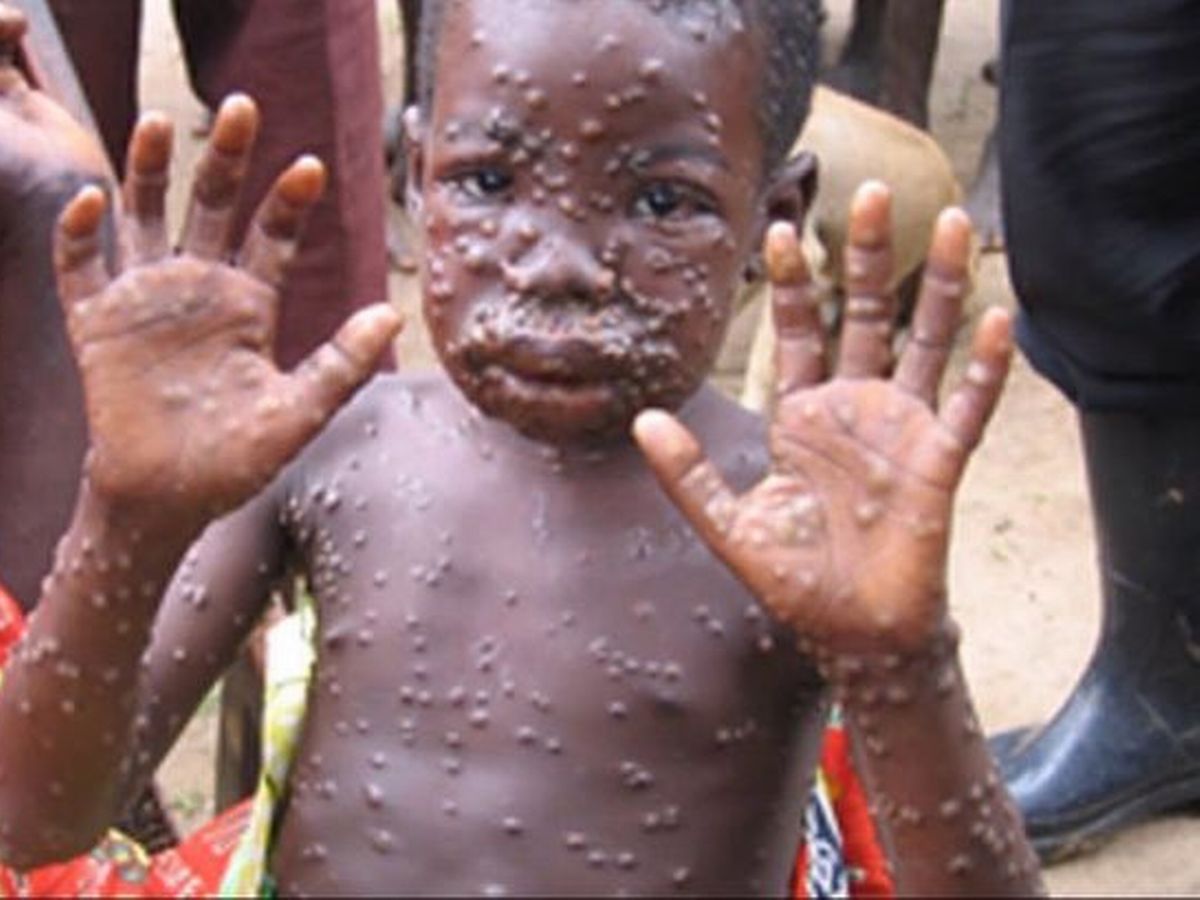
Thinking of disease constantly will intensify it. Feel always ‘I am healthily in body and mind’. -Swami Sivananda
Monkeypox was identified in 1958 after two outbreaks of a pox-like illness occurred in study colonies of monkeys. Despite the moniker “monkeypox,” the disease’s origin is uncertain. However, African rodents and non-human primates (such as monkeys) may host the virus and infect humans.
The first human case of monkeypox was reported in 1970. Prior to the 2022 outbreak, monkeypox has been documented in various Central and Western African nations.
Previously, practically all monkeypox cases in individuals outside of Africa were connected to foreign travel to places where the illness was widespread or through imported animals. These incidents occurred across numerous continents.
Moreover, Monkeypox is an uncommon illness caused by monkeypox viral infection. The monkeypox virus belongs to the same viral family as the variola virus, which causes smallpox.
The symptoms of monkeypox are similar to those of smallpox, although they are milder, and monkeypox is seldom deadly. Chickenpox is not related to monkeypox.

How does Monkeypox Spreads?
Monkeypox spreads in a variety of ways. The virus can be passed from person to person via:
- contact with infectious rash, scabs, or bodily fluids
- respiratory secretions produced during prolonged face-to-face contact or close physical contact such as kissing, hugging, or sex
- contacting anything (such as clothing or linens) that have previously come into contact with the infectious rash or bodily fluids
- Pregnant women can pass the virus to their fetus via the placenta.
Additionally, individuals can get monkeypox from diseased animals by being bitten or scratched by them, preparing or consuming meat from them, or using their products.
From the moment that symptoms appear until the rash has completely healed and a new layer of skin has grown, monkeypox might spread. Usually, the disease lasts two to four weeks. Monkeypox cannot be transmitted by people who don’t have any symptoms. Whether monkeypox may transmit by semen or vaginal secretions is unknown at this time.
What are the Signs and Symptom of Monkeypox?
Less severe than smallpox, monkeypox symptoms are comparable to smallpox symptoms. Monkeypox seldom results in death. The chickenpox virus is unrelated to monkeypox. Therefore below are some signs and symptoms one exhibits when affected with the Monkeypox;
- Fever
- Headache
- Muscle aches and backache
- Swollen lymph nodes
- Chills
- Exhaustion
- Respiration issues (e.g. sore throat, nasal congestion, or cough)
- Having a rash that can resemble pimples or blisters and that can form on the face, inside of the mouth, the hands, feet, chest, genitals, or the anus.
Note: Before the rash entirely disappears, it passes through several phases. Usually, the disease lasts two to four weeks. Sometimes the rash appears first, then the accompanying symptoms. Some people merely get a rash.
Monkeypox Prevention Measures
In order to stay safe, follow these instructions to avoid contracting monkeypox:
- Do not come in close contact with somebody who has a rash that resembles monkeypox.
- Never touch a monkeypox victim’s rash or sores.
- Avoid sharing intercourse, kissing, hugging, and cuddling with someone who has the monkeypox.
- Sharing cups or eating utensils with someone who has monkeypox is not advised.
- Never handle or touch a person who has monkeypox’s bedding, towels, or clothing.
- Use an alcohol-based hand sanitizer or often wash your hands with soap and water.
- Avoid interacting with rodents and primates in Central and West Africa as they are the main carriers of the monkeypox virus. Additionally, stay away from ill or dead animals as well as the bedding or other items they
What to do if infected with the monkeypox
The following are some actions to take if you start to exhibit symptoms of monkey pox infection:
- Observe the CDC’s Isolation and Prevention Practices for People with Monkey Pox
- If you have a fever or respiratory symptoms like a sore throat, nasal congestion, or a cough, stay home alone.
- Only leave the house in case of an emergency or to see a doctor.
- If you must leave isolation, cover the rash and put on an appropriately sized mask.
Conclusion
‘Health is not valued till sickness comes’ -Thomas Fuller
Let’s not put off valuing our health till we become ill. To keep safe, be aware of the causes, signs, and prevention of monkeypox.



Can you be more specific about the content of your article? After reading it, I still have some doubts. Hope you can help me.
Thank you for your sharing. I am worried that I lack creative ideas. It is your article that makes me full of hope. Thank you. But, I have a question, can you help me?
Can you be more specific about the content of your article? After reading it, I still have some doubts. Hope you can help me.
Thanks for sharing. I read many of your blog posts, cool, your blog is very good. https://accounts.binance.com/uk-UA/register?ref=W0BCQMF1
I don’t think the title of your article matches the content lol. Just kidding, mainly because I had some doubts after reading the article.